Panel at Greenfield Community College looks at gun law reform
| Published: 05-03-2023 7:00 PM |
GREENFIELD — Rather than stopping criminals, more gun laws in Massachusetts will only serve to punish “law-abiding citizens.”
That was the message from a majority of those who spoke before a panel of experts as part of a comprehensive review of the state’s gun laws during a listening tour at Greenfield Community College Tuesday night — the third of a dozen stops statewide being led by state Rep. Michael Day, D-Stoneham.
“Do you honestly think pushing more laws through is going to stop the criminals?” asked Gill resident Greg Parody.
Others attending the forum disagreed and lobbied for new laws to strengthen gun safety. In particular, representatives from Moms Demand Action, were on hand, a group that advocates for “commonsense solutions to prevent gun violence.”
Still others addressed how confusing the state’s current gun regulations are and called for them to be streamlined and easier to understand.
“We have a strong network of laws that encourage responsible gun ownership and a commonsense system that preserves our residents’ constitutional rights while also ensuring the safety of our community,” Day said. “The system, as we all know, is far from perfect.”
Before introducing a panel that included representation from law enforcement, firearm dealers and instructors, and recreational firearms users, Day shared that he was tasked by Massachusetts House Speaker Ronald Mariano, D-Quincy, to review the state’s gun laws. Each stop on the tour focuses on different aspects of the state’s web of laws and regulations relating to firearms.
“Our communities face challenges that are far from novel,” Day said. “Issues such as suicide, domestic violence, drug-related and organized crime have been with us for some time … Yet we also hear from responsible gun owners, collectors and hunters, that say the laws in our books are confusing and outright contradictory, that compliance is challenging, especially as neighboring states have completely different approaches.”
Article continues after...
Yesterday's Most Read Articles
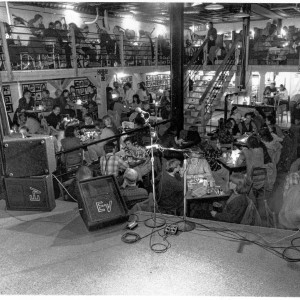 The Iron Horse rides again: The storied Northampton club will reopen at last, May 15
The Iron Horse rides again: The storied Northampton club will reopen at last, May 15
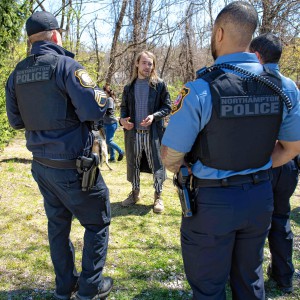 Homeless camp in Northampton ordered to disperse
Homeless camp in Northampton ordered to disperse
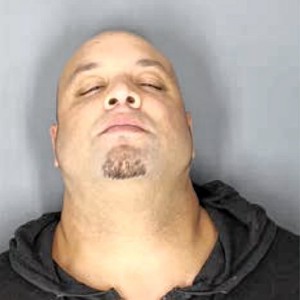 Authorities ID victim in Greenfield slaying
Authorities ID victim in Greenfield slaying
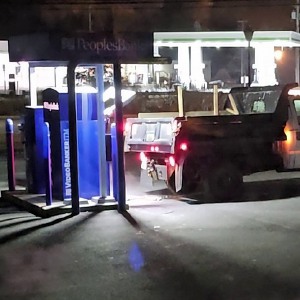 $100,000 theft: Granby Police seek help in ID’ing 3 who used dump truck to steal cash from ATM
$100,000 theft: Granby Police seek help in ID’ing 3 who used dump truck to steal cash from ATM
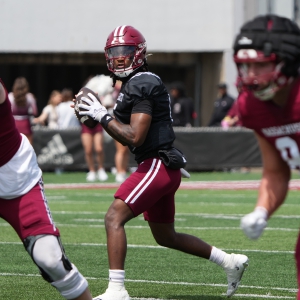 UMass football: Spring Game closes one chapter for Minutemen, 2024 season fast approaching
UMass football: Spring Game closes one chapter for Minutemen, 2024 season fast approaching
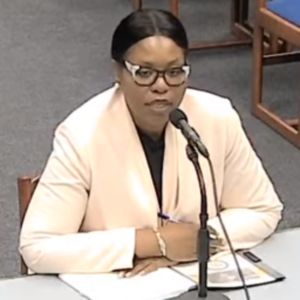 Final pick for Amherst regional superintendent, from Virgin Islands, aims to ‘lead with love’
Final pick for Amherst regional superintendent, from Virgin Islands, aims to ‘lead with love’
Panelists included Hadley Police Chief Michael Mason, who serves as president of the Western Massachusetts Chiefs of Police Association, along with gun shop owner Toby Leary and former environmental police officer John Pasak.
“Our Chapter 140 with Massachusetts firearms laws is extraordinarily confusing,” Mason said. “It’s very hard to learn, it’s very hard to know, and ... there are some contradictory things in there.”
Mason explained the licensing process, which includes background, mental health and criminal history checks, fingerprinting and interviews, noting that the process could be streamlined. With interviews in particular, he said, there are no guidelines for what is expected of local law enforcement to ask.
Leary, who said that for his gun shop alone he is required to have 10 separate licenses, added that different towns have different standards or expectations with respect to initial licensing. Leary argued the “restrictive licensing scheme” is “inconveniencing the people you don’t need to worry about.”
He said the “vast majority” of gun owners are law-abiding and trying to do their best to obey the law — a sentiment others in the audience echoed.
“It’s maddening the minutia and the confusion of it, just so people can try to do the right thing, try to be compliant with the law,” Leary said.
Others spoke in support of certain laws to strengthen gun safety.
In particular, Robin Neipp of Leyden expressed support for a number of bills, including H.2380, which addresses gun industry accountability, H.2307, which aims to expand gun violence reporting requirements, and H.2365, which would require approved safety courses for people seeking a license to carry to include at least five hours of live-fire training. Another bill, H.305, would require the Department of Elementary and Secondary Education to develop information about secure storage of firearms, the risk of child access to firearms and suicide prevention materials.
“I really appreciate the panel today and I appreciate the listening tour,” Neipp said.
Others in the audience shared concerns that guns have become the number one cause of death in children. One woman encouraged the responsible gun owners in the room to lend their voice to the issue, improving education.
Several residents said that when illegal guns are confiscated in relation to violent or drug-related offenses, they’re often not the first offense of the person involved.
“In Hadley and in western Mass., with the exception of major cities like Springfield, we don’t come across illegal firearms very often,” Mason said. “When we do, it’s usually … a dangerous situation. I’ll echo what [Pasak] said: A lot of the people we come across, this is not a first-offense situation.”
There was also a consensus among some that there were external issues that need to be considered in the conversation on gun violence, particularly mental health.
Renee Gagne of Taunton, speaking as a member of the DC Project: Women for Gun Rights, said she was grateful for the opportunity to be in a room full of diverse views on the subject.
“We may not agree but we all want the same things,” Gagne said. “We want safe communities and we’re looking for effective solutions for that.”

 Authorities ID victim in Greenfield slaying
Authorities ID victim in Greenfield slaying  Federal probe targets UMass response to anti-Arab incidents
Federal probe targets UMass response to anti-Arab incidents Locking up carbon for good: Easthampton inventor’s CO2 removal system turns biomass into biochar
Locking up carbon for good: Easthampton inventor’s CO2 removal system turns biomass into biochar William Strickland, a longtime civil rights activist, scholar and friend of Malcolm X, has died
William Strickland, a longtime civil rights activist, scholar and friend of Malcolm X, has died
